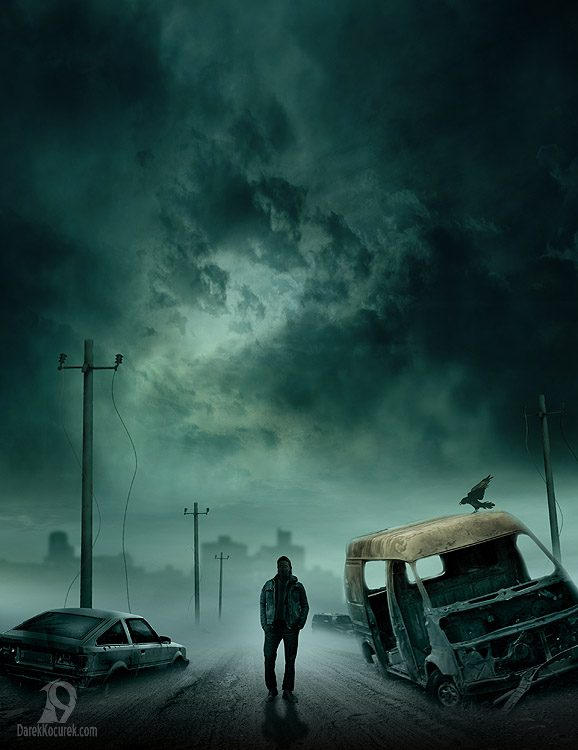Originally posted Nov. 7, 2003.
Left Behind, chapter 1
The remarkable thing about Tim LaHaye and Jerry Jenkins’ description of the Rapture in this first chapter is how very creepy it isn’t.
The events they’re attempting to describe are so audacious, so potentially unsettling, that this chapter should make your flesh crawl and the hair on the back of your neck stand on end.

But it doesn’t. And that’s not just because L&J are bad writers.
Left Behind, despite its religious trappings, is part of a larger genre of earth-shattering apocalyptic tales. Contrast the opening chapters of LB with the early pages of Stephen King’s The Stand, which offers a similar sweeping epic tale of the end of the world.
King’s story is genuinely frightening. L&J’s is not. This is, of course, partly because Stephen King is a better stylist. But the main difference is not King’s skill as a storyteller, but his objective. When you read The Stand, he wants you to imagine this is happening to you.
The tone and objective of LB, instead, asks you to imagine this happening to someone else. The reader has no purchase, no foothold in the story — and thus no reason to find it personally unsettling.
L&J’s approach divides their readers into two categories. You can, like the authors, consider yourself among the departed, looking on these wooden characters with a gloating scorn. Or else you must be, like these characters, the object of that scorn. Either way, there’s little room for the empathy necessary to make such stories truly frightening.
L&J’s polemical triumphalism blunts any potential the story has for emotional impact. See for example the closing lines of their first chapter:
Worse, Rayford had told Hattie he didn’t know what was happening any more than she did. The terrifying truth was that he knew all too well. Irene had been right. He, and most of his passengers, had been left behind.
We the readers also know “all too well” what has happened — it has been clumsily, didactically spelled out, and will be again and again in the book. There is no sense of mystery or mysteriousness, no sense of wonder. Even God and the workings of God are fully known, fully understood, pinned to a board like an entomologists specimen. There is nothing “terrifying” about such reductive, Gradgrindish “truth.”
The theme of the book is stated directly in that paragraph: “Irene had been right.” Irene is Rayford Steele’s prophecy-obsessed wife, the one who warned him all along of the coming rapture and tribulation and antichrist, while educated fools like Rayford had sneered at her faith, scorning her beliefs. She is the first of the authors’ stand-ins, which means you can substitute their names for hers in that sentence and convey, precisely, the whole point of this series of books: “LaHaye and Jenkins had been right.”
Mennonite theologian Loren L. Johns identifies this “unadulterated triumphalism” as one of the most disturbingly unchristian aspects of the series:
… Fundamental to the spirit of the Left Behind series is the sense of vindication that “we” have been right all along. The not-so-subtle news headline that lies behind the entire series could well be, “Premillennial Dispensationalists Proved to Have Been Right All Along.” The message of this series is unadulterated triumphalism. You can forget the business of Christians taking up the cross in this series!
Premillennial dispensationalists have admittedly gotten rough treatment in the modern world. From a modernist or secularist point of view, the claims of a pre-Tribulation rapture of the church, followed by seven years of Tribulation, followed by the thousand-year reign of Christ just seems too preposterous to be believed. Combine that with the fact that premillennial dispensationalists have been prone to set dates for the Second Coming of Christ — and the fact that their batting average so far has been zero — and that well-educated theologians as a whole tend to pooh-pooh their ideas, and you quickly come to a point of eschatological frustration with the way things are.
It is not the Lamb who has conquered in this series, but the premillennial dispensationalists! “We win!” Similarly, “You lose!”
Johns is astute in pointing out the transparent insecurity and frustration that are the source of this fictional vindication, and how it undermines the “taking up the cross” that is the literal crux of Christianity.
What he doesn’t also mention is this: It renders the story far more dull than such a tale has any right to be.












